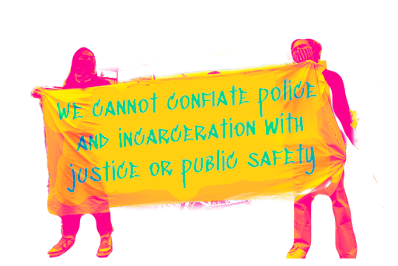The Los Angeles Times has produced a devastating report about how police are trained to interrogate family members of people they have killed, looking for derogatory information that will defend against, or lower payouts, in any wrongful death lawsuit.
Here's just one example among many the report includes:
Julie and Rick Perez unwittingly offered up a golden statement when a detective from the Richmond Police Department and an investigator from the district attorney’s office knocked on their door at 4:20 one morning in 2014. A few hours earlier, an officer in the Bay Area city had fatally shot their son.
When Julie Perez asked if her son was in trouble, the investigator said, “I’m going to get to that in a second,” according to a recording of the encounter first published by KQED.
The investigator launched into a series of questions about their son. Did he use drugs? Did they have a good relationship? Did he have problems with the police? Did he have “demons to conquer?” Unknown to Julie and Rick Perez, the investigator and the detective were secretly recording their responses.
“We’re not trying to trick you or nothing,” the investigator told the increasingly agitated parents.
“I hope he’s not in big trouble, and I wish you guys would get to the punch line,” Rick Perez said 10 minutes into the interview.
“I don’t know how to say this,” the investigator said.
Rick Perez finished his sentence: “You guys shot him.”
When the couple filed a lawsuit, it became clear that the city intended to defend itself by focusing heavily on what they and other family members had disclosed to investigators. The thought of having their family’s worst secrets and darkest moments spilled in open court was a factor in the family’s decision to settle with the city for $850,000.
It turns out, cops-in-training are taught that their first job, after an officer kills someone, is to extract whatever they can from friends and relatives that would be derogatory about the dead person. There's a company, Lexipol, which many California departments contract with for training, that specializes in getting this message across. A former cop and lawyer named Bruce Praet teaches new officers how to avoid responsibility.
In an online training seminar reviewed by The Times, Praet instructs detectives to approach a mom before she learns her son has just been killed by police: “You got about five, 10, 30 minutes to get out there before word gets back on the street — that bad guy is either in the hospital, dead, jail, whatever.”
... In one seminar highlighted by [Joanna Schwartz, a UCLA law professor], Praet recommended that officers who use force against people in mental health crises should describe them in their reports as appearing to be on drugs because “jurors don’t like druggies.”
In another seminar, Praet showed off a police photograph of a man who had just been mauled by a police dog. He noted with approval how the police photographer had posed the man with his arm draped over the police dog while smiling and flashing a gang sign. “That was Exhibit One in the lawsuit, guys.”Ninety-five percent of California law enforcement agencies use Lexipol for training according to the Times.
Departments that choose to train officers this way make the case for "defund the police." This isn't about safety for the community; it's about safety for cops. Ban contracts with Lexipol.

2 comments:
Cops being trained to lie and evasive? Who needs to be arrested?
Sickeningly sick and shamelessly shameful
Post a Comment